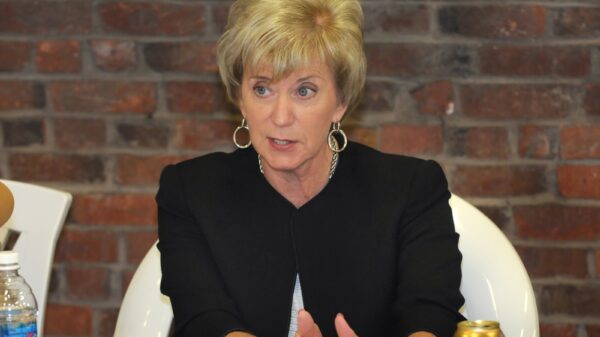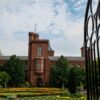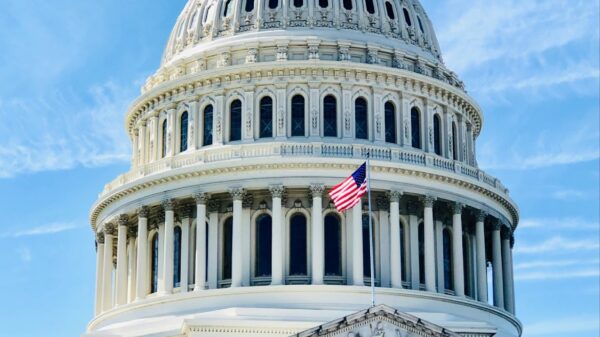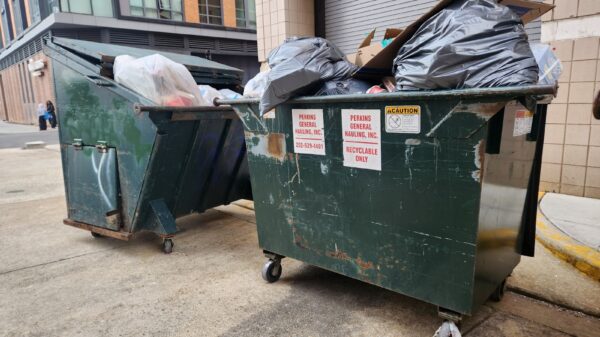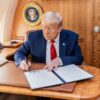
As President-elect Donald Trump prepares to take office for his second term, his campaign promise to “take over” Washington D.C. has sparked concern among local officials and residents.
Trump’s rhetoric about reasserting federal control over D.C. has prompted some city leaders to plan strategies to protect the city’s autonomy.
Trump said that he plans to take over D.C. during a rally in Florida.
“We will take over the horribly run capital of our nation in Washington, D.C., and clean it up, renovate it and rebuild our capital city so there is no longer a nightmare of murder and crime,” he said. “We’re going to take it away from the mayor.”
One concern from residents is Trump’s ability to revive the D.C. Financial Control Board, a federal body that managed D.C.’s affairs from 1995 to 2001.
Local leaders, including Mayor Muriel Bowser, have expressed fears that such a move could undermine the District’s autonomy.
In an NBC4 Washington report, Republican insiders also suggest that Trump may seek to federalize the D.C. Metropolitan Police Department, placing public safety under federal jurisdiction.
The report also indicated that there are fears that a second Trump administration, particularly with a Republican-controlled Congress, could target local laws, from abortion rights to traffic cameras.
According to a July report from NBC4 Washington, Bowser’s team has been preparing for these scenarios and other potential challenges.
“I have worked with three presidents, including President-elect Trump, and congressional leaders of both parties to advance the priorities of the District,” Bowser said, following Trump’s victory.
Jo Von M. McCalester, a political science professor at Howard, commented on the potential revival of the Financial Control Board.
“While a control board under Trump might seem unlikely in normal circumstances, it’s still a real possibility given his rhetoric,” McCalester said.
She noted that Trump’s portrayal of D.C. as a crime-ridden and mismanaged city could fuel such actions, even though she believes the city has seen improvements in its finances and crime rates.
She said that such a move might be driven less by governance concerns and more by a desire to assert control and reallocate resources, such as traffic camera revenue.
Bowser also emphasized her administration’s preparation to defend the city’s autonomy in the NBC4 Washington report.
Despite these concerns, she has reached out to Trump’s team to explore ways to strengthen the local economy and better utilize federal properties within the city.
Bowser has also voiced concerns in the report over Trump’s immigration policies, particularly his stance on mass deportations, which could leave undocumented residents at risk.
According to the American Immigration Council, approximately 25,000 undocumented immigrants live in D.C., accounting for 28 percent of the city’s immigrant population and 4 percent of its total population.
The American Immigration Council also states that D.C. is home to 600 active DACA recipients as of March 2020, with 738 residents granted DACA status since 2012.
College students in D.C. are also worried about the impact federal control could have on their future.
Brianna Artis, a junior TV and film major from Philadelphia emphasized the need for students to stay engaged.
“As Howard students, we must continue the fight for change not just within our university, but in the broader Washington, D.C. community,” she said. “By building coalitions and educating ourselves about systemic issues, we can push for meaningful change and lead the charge for a better future.”
While students like Artis remain focused on local engagement, others are concerned about how the potential loss of key federal programs could affect their education.
Now that Republicans have gained control of both the House and the Senate, D.C. council members are discussing federal interventions in local laws, including those on immigration and abortion, according to AP News.
“We have been discussing and planning for many months in the case that the District has to defend itself and its values,” Bowser said.
Republican control of Congress has raised concerns among D.C. leaders about federal interference in local laws. Congress has a history of using budget riders to block D.C. legislation, and city officials are preparing to defend their autonomy against potential challenges.
“I can’t predict what they’re going to try to do to us. I can just prepare to respond,” Councilmember Christina Henderson said in an AP News article.
Concerns raised by D.C. leaders such as Bowser and Councilmember Charles Allen include the use of budget riders, which Congress has previously used to block D.C. laws.
Allen said, “They want to do something to the District because they feel they can. They would never do that to their own state.”
While both Allen and Henderson have spoken about the challenges posed by congressional interference, officials in Bowser’s administration have been closely watching Project 2025, which many view as the blueprint for Trump’s upcoming second term, NBC4 Washington reported.
Project 2025’s “playbook” is a blueprint for conservative policy initiatives, targeting areas like public education and even proposing the abolition of the Department of Education.
Erika Sermiot, a sophomore studying political science, stressed the potential impact on education funding.
“If Trump truly plans to abolish the Department of Education, it will directly affect young people and college students because the future of FAFSA would no longer exist,” she said.
Copy edited by Camiryn Stepteau





